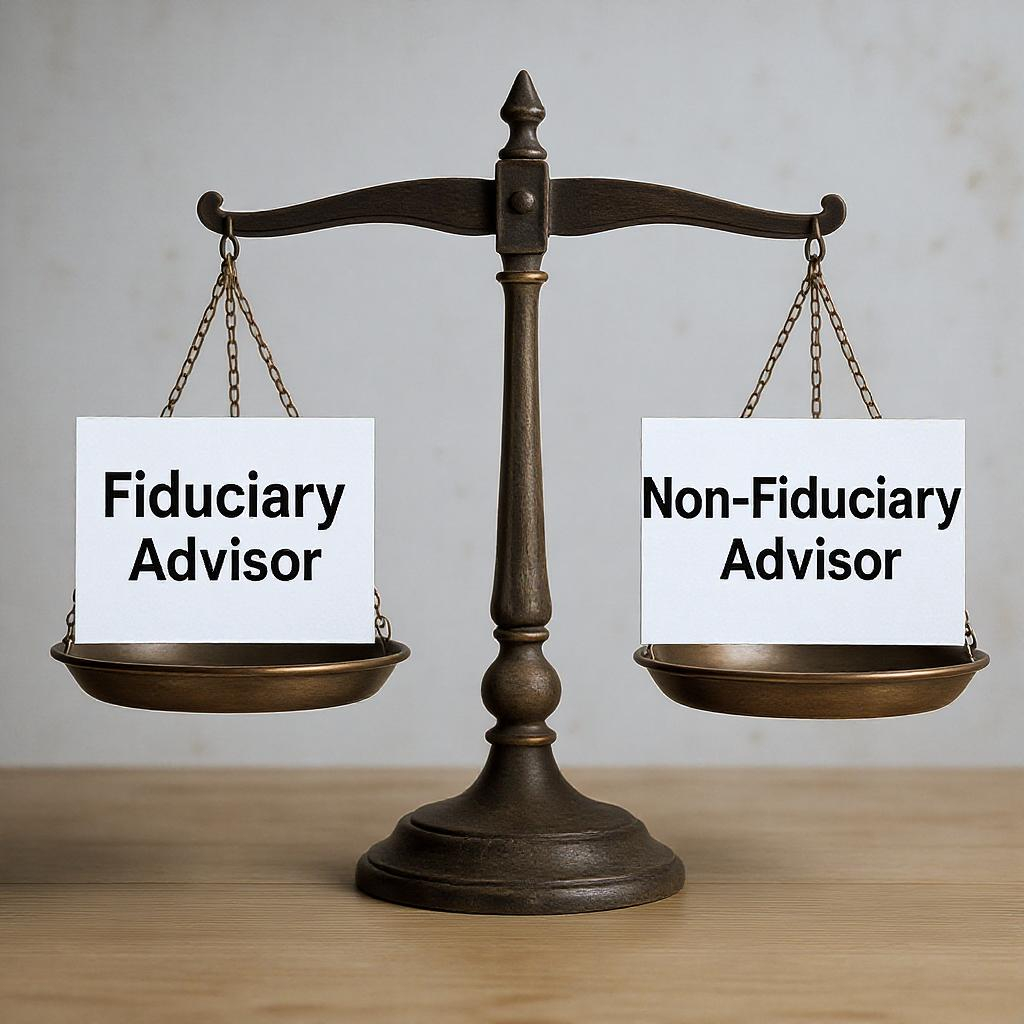The Fiduciary Standard: Your Best Interest, Period.
Imagine a doctor who always prescribes the best treatment for your health, regardless of how much they personally profit from it. That's the essence of a fiduciary financial advisor.
Fiduciary advisors are held to the highest legal and ethical standard. This isn't just a suggestion; it's a requirement. They are legally bound to act in your best interest at all times. What does that actually look like in practice?
- Your Needs Above All Else: A fiduciary advisor must prioritize your financial well-being over their own potential earnings. If there's a conflict of interest, they have to either avoid it or tell you about it clearly and completely.
- Crystal-Clear Fees: There are no hidden charges, no vague explanations. Fiduciaries are fully transparent about how they get paid, typically through a flat fee or a percentage of the assets they manage for you. This fee structure significantly reduces the incentive to recommend products that simply earn them a higher commission.
- Tailored, Unbiased Advice: Their recommendations are based solely on what's best for your unique financial situation, not on which product pays them the most. They won't push investments just to make a sale.
- Serious Oversight: Fiduciaries are regulated by bodies like the SEC, FINRA, and professional organizations such as the CFP Board, ensuring they adhere to rigorous standards.
When you see designations like CFA® (Chartered Financial Analyst) or RIA (Registered Investment Advisor), you're more likely to be looking at professionals who operate under a fiduciary duty.
The "Suitability" Standard: A Lower Bar for Your Money
Now, let's look at the alternative: non-fiduciary advisors. This group often includes many broker-dealers and insurance agents. While they can provide valuable services, they operate under a significantly less stringent "suitability" standard.
Think of it this way: a "suitable" recommendation isn't necessarily the best recommendation for you. It just has to be "good enough." Here's why that's a problem:
- Commissions Drive Choices: Many non-fiduciaries are compensated on a commission basis. This means they earn money when you buy specific financial products. Naturally, this can create a powerful incentive to recommend products that pay them higher commissions, even if there's a better, lower-cost option for you.
- Less Disclosure, More Potential Conflicts: They are not obligated to disclose every potential conflict of interest. This means you might be completely unaware that an advisor's recommendation is influenced by their own financial gain.
- "Good Enough" vs. "The Best": While they must recommend products that are "suitable" for your needs, they are not required to recommend the best or lowest-cost option available. This can lead to you paying more in fees or investing in less optimal products over time.
Why This Distinction Isn't Just Jargon – It's Your Financial Protection
The difference between a fiduciary and a non-fiduciary advisor isn't just a technicality; it can profoundly impact your wealth accumulation and financial security.
A fiduciary advisor is legally obligated to act in your best interest, whereas a non-fiduciary advisor only needs to recommend suitable products. This means fiduciaries offer high transparency, fully disclosing fees and conflicts, and basing product recommendations solely on what's best for you. In contrast, non-fiduciaries often operate on commission, are not required to disclose all conflicts, and may recommend products that are "suitable" but not necessarily the best option for your financial goals. Their regulatory oversight is typically less rigorous regarding a client-first duty.
When an advisor's compensation is tied directly to the sale of certain financial products, it's incredibly difficult to eliminate the potential for bias. Your interests, while perhaps considered, are not legally mandated to be the absolute top priority.
The Bottom Line: Demand a Fiduciary
Your financial journey is too important to leave to chance or potential conflicts of interest. When you're choosing an investment advisor, make these questions non-negotiable:
- "Are you a fiduciary?" Get a clear, unambiguous "yes."
- "How are you compensated?" Understand their fee structure completely.
- "Will you provide me with a written statement affirming your fiduciary duty?" Many fiduciaries are happy to do this.
By choosing a fiduciary advisor, you're not just hiring someone to manage your money; you're gaining a true financial partner who is legally and ethically bound to put your interests first. This is the gold standard for financial advice, and it's what your financial future deserves.
For more information and personalized guidance, please feel free to reach out to Vistamark Investments LLC. You can contact us at 312-895-3001, visit our website atwww.vistamarkllc.com, or send us an email to info@vistamarkllc.com.
